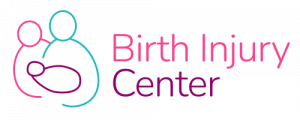Necrotizing Enterocolitis (NEC) Link to Cow’s Milk Baby Formula
Home > Necrotizing Enterocolitis (NEC) > NEC Link to Baby Formula
- Last Updated Date: September 6, 2023
Various clinical studies suggest a link between premature low birth weight infants ingesting baby formulas made with cow’s milk and necrotizing enterocolitis (NEC). NEC is a serious illness marked by severe inflammation in the gastrointestinal tract, which may result in a hole developing in the baby’s intestinal wall.
There is widespread agreement among researchers that formula feeding, as compared with breastfeeding, is strongly linked to the development of NEC among infants. Cow’s milk-based infant formula manufacturers, including Mead Johnson & Company (maker of Enfamil) and Abbott Laboratories (maker of Similac), are facing litigation initiated by parents after their preemies developed NEC.
Potential Link between NEC and Cow's Milk Baby Formula
What is NEC from baby formula? Necrotizing enterocolitis is a condition in which there is severe inflammation in the intestinal wall. This leads to the death of cells within the wall of the gastrointestinal tract.
NEC can lead to bowel perforation, which allows digestive fluids and stool to escape into the abdominal cavity and bloodstream. This can lead to severe and potentially fatal complications, including sepsis, which is a bacterial infection in the bloodstream. Doctors do not yet understand the cause of NEC, but various studies have shown correlation between bovine milk-based baby formula and this often deadly condition.
NEC Symptom Overview
The onset of symptoms from NEC typically occurs within days of birth, most often before the infant leaves the neonatal intensive care unit (NICU). One of the most common signs is abdominal distention, which is inflammation of the abdomen. Some of the various other possible symptoms of NEC include:
- Yellow or green vomit caused by bile backing up into the stomach
- Constipation or delayed gastric emptying
- Unstable or low body temperature
- Hypotension (low blood pressure)
- Dark, bloody stools or diarrhea
- Bradycardia (slow heart rate)
- Pauses in breathing (apnea)
- Inflamed intestinal wall
- Low energy or lethargy
- Feeding problems
NEC and Peritonitis
The peritoneum is a silky membrane that lines the outside of the intestinal wall. Inflammation of the peritoneum is called peritonitis, and it is usually caused by fungal or bacterial infection. When NEC causes perforation of the intestine, it can lead to peritonitis.
Peritonitis is very serious and requires prompt medical attention. Treatment may involve antibiotics and/or surgery to remove damaged parts of the intestine. If it is not successfully treated, the condition may result in sepsis, and can be fatal.

Although the removal of damaged intestinal tissue may be necessary to save the baby’s life, this procedure is not without complications. When parts of the intestines are removed, the tissue that remains may be too short to efficiently absorb nutrients from food, which can lead to lifelong gastrointestinal and nutrient absorption problems.
Rates of NEC have been reported to be as high as nearly 9% in very low birth weight babies, although there is significant variation between centers. In extremely low birthweight babies, who weigh less than 1000g, rates may be as high as 22%. Mortality rates are decreasing due to more effective treatments, but the death rate for infants with NEC is still at nearly 30%.

How Cow’s Milk Baby Formula Might Increase the Risk of NEC
For premature babies, one of the strongest risk factors for developing NEC is being fed formulas made with cow’s milk. Those who are fed human breast milk, whether sourced from the mother or from a donor, are at significantly decreased risk.
Although there’s widespread agreement that breast milk is protective against NEC, the mechanisms of this association are not yet clear. The leading theory is that certain substances in human breast milk help to combat the growth of dangerous bacteria in the baby’s intestines. Cow’s milk lacks these factors, and so it’s easier for these damaging organisms to grow and cause severe inflammation in the gastrointestinal systems of babies who are fed formula.
Which Formulas Have Been Linked?
It’s important to note that not all FDA-approved baby formula products are linked to NEC, only those made with cow’s milk. However, that includes about 80% of major brands and store brand equivalents. These bovine-based infant formula manufacturers include:
- Gerber
- Similac
- Enfamil
- Go & Grow
- Happy Baby
- Earth’s Best
- Parent’s Choice
Other milk-based baby formula products include Baby’s Only, Loulouka, Holle, Kendamil, Bobbie, and Lebenswert. It makes no difference if a baby formula made with cow’s milk is organic or not; necrotizing enterocolitis can occur with both organic and non-organic.
Cow’s Milk Baby Formula Manufacturers NEC Lawsuits
Various baby formula manufacturers are currently facing litigation. Plaintiffs claim that the product makers failed in their responsibility to provide sufficient information and warning about the risk of infants developing necrotizing enterocolitis after being fed bovine milk formulas.
The suits allege that the product makers knew about the life-threatening NEC risks of their products for at least 10 years, and many of them still failed to provide adequate warning labels on their products. Plaintiffs assert that the manufacturers knew that breastfeeding would likely have been much healthier for their preemies.
If the manufacturers were more honest about the risks, then more low birth weight and premature babies would likely have been fed human breast milk, which could have prevented them from developing NEC.
If your premature baby developed this potentially deadly condition after being fed cow’s milk-based infant formula, you may wish to seek legal advice about the possibility of filing a product liability lawsuit. Some parents of infants who developed NEC sadly lost their babies, and for others, the lifelong costs of medical care associated with complications of NEC can be a significant burden.
Medical negligence and product liability lawyers fight for parents and babies who have been injured by bovine milk-based formula.
If you believe your baby’s formula caused them to develop necrotizing enterocolitis, the Birth Injury Center is here to help. Our team can walk you through the legal process and help you obtain compensation for your losses. Contact us today to schedule a free consultation for legal assistance.
Written by:
Birth Injury Center Team
The Birth Injury Center aims to create informational web content and guides to help women and their families seeking support and guidance for birth injuries caused by medical negligence. All of the content published across The Birth Injury Center website has been thoroughly investigated and approved by medical expert Natalie Speer, RNC-OB, Attorney Ryan Mahoney.


